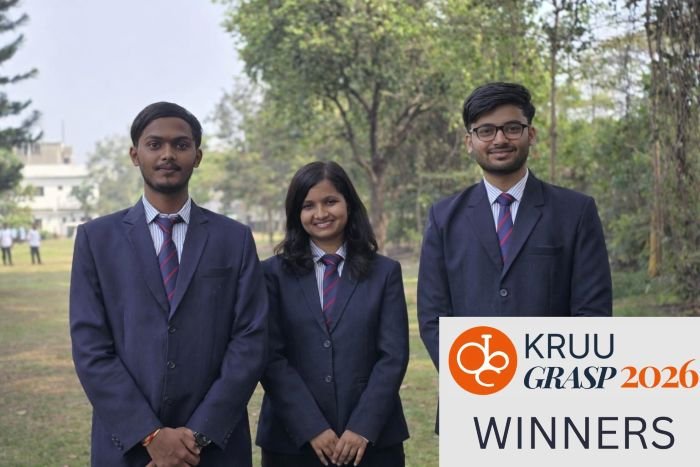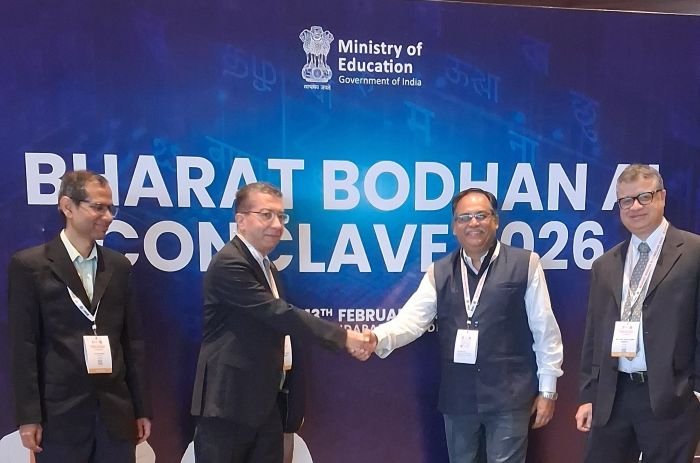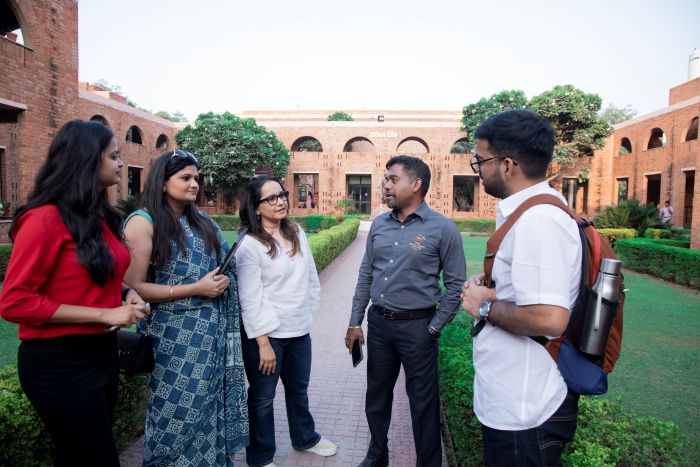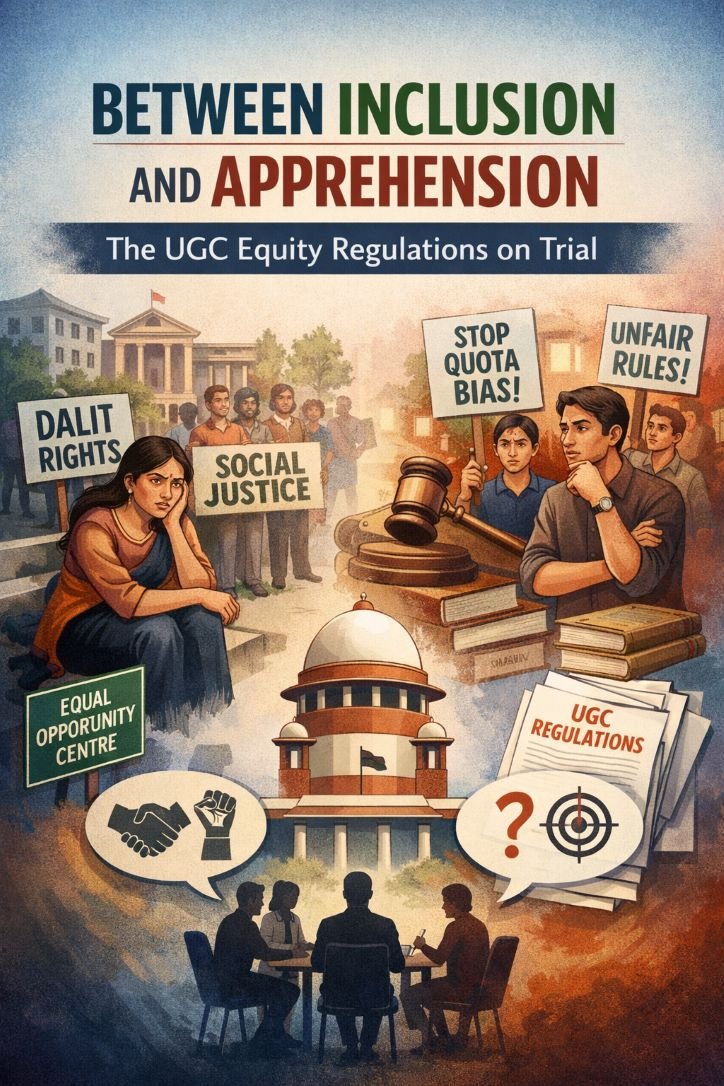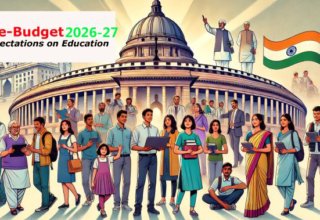
The country-wide network of an estimated 1.38 million Anganwadi Centres (AWCs) established under the Integrated Child Development Services (ICDS) catering to young mothers and children of 0-6 years will be augmented and modernized to provide standardized Early Childhood Education (ECE) in a phased manner during the next five years beginning 2021-22. The plan is to cover 20 percent of these AWCs each year. Further, in convergence with Department of School Education, the curriculum of children of age group of 3-6 years will be finalised and for this purpose NCERT will be in consultation with the Ministry of Women & Child Development (MWCD) and National Institute of Public Cooperation and Child Development (NIPCCD).
This information was provided by the Government to the Parliamentary Standing Committee on Education, Women, Children, Youth and Sports after the Committee had recommended that the MWCD should chalk out a blue print in coordination with the Ministry of Education to modernize Anganwadis and strengthen them as early-childhood education institutions in line with the over-arching goal of ensuring universal access to high-quality Early Childhood Care and Education (ECCE) as envisaged in the National Education Policy (NEP), 2020. The report of the committee was tabled in the Parliament in the recently concluded winter session of the Parliament.
While the plan definitely seeks alignment of early education with school education under the new format of five years of ECE under the 5+3+3+4 scheme as envisaged in NEP 2020, still it is be seen how it actually rolls out on the ground. It may be mentioned that the ambitious ICDS now Umbrella ICDS being the world’s largest scheme of its nature catering to 9.06 crore children in India (Rs 20,105 Cr annual budget for year 2021-22), which is home to largest children (0-6 yrs) population in the world at 15.8 crore, is in for a significant transformation.
However, at a time when most of the ECE apparatus has collapsed during the past two years of Covid pandemic, it is going to be a lot of spade work including developing a cadre of ECE trained teachers and providing necessary infrastructure before any meaningful progress can be made in universalizing a standard ECE. And, for starters, the escapist government establishment has proposed Anganwadi workers with qualifications of 10th will be given 1 year online training and that with +2 will be given 6 months online training. While the efficacy and utility of online training is continuously being questioned by experts as against face to face, there is hardly a clear statement on how the present crisis presented by prolonged closures will be negotiated and addressed. Closure of AWCs has also impacted the distribution of supplementary nutritious cooked food, crucial iron and folic acid (IFA) supplements and deworming tablet, albendazole to children and young mothers.
In the last two years AWCs rightly repurposed to position as frontline covid fight centres by way of counselling, spreading awareness, delivering dry rations and other assistance. However, as the pandemic prolongs and is still indomitable, the vital early education is seeing its worst crisis. For nearly two years now, India small children have missed classrooms. Needless to mention that early childhood years are the most crucial in terms of development of physical, sensorimotor, social, emotional, linguistic and cognitive faculties. Research has also validated that brain development is most rapid in these years. Therefore, with blanket closures and no attempt to address the reopening scientifically, along with these children, the school education will be impacted in coming years. “Talking about the small children and impact of covid pandemic on them, in a way their whole childhood has been lost and there is a deep psycho-social impact on their lives. They don’t have literacy and numeracy skills and certainly the most deprived sections of society are the most impacted. The challenge it poses for schools is also enormous. A child without knowing how to be a learner and having literacy skills getting admitted in class 1 or 2 will be a serious difficulty for teachers as school teachers are not trained on how to build literacy. Mildly put, it will be chaos as the schools reopen fully,” says Dr Geeta Menon, a retired chair professor of Centre for Early Childhood Development and Research at Jamia Millia Islamia University, Delhi and a former UNICEF expert.
One of the major shifts of recent years in ECE has been co-locating AWCs in primary schools and already the process has started in some parts of the country. Experts are divided on success of its integration given AWCs are essentially a community structure where mothers and other community workers have free access and the environment is informal. In contrast, schools are formal structures and therefore AWCs within schools will need to come up as autonomous structures with a professional teacher cadre. But the bottom-line is reopening of these AWCs alongwith schools should be prioritized. According to a recent statement from the UNICEF, the safe reopening of schools must be considered an utmost priority for all governments. Parallelly, investing in teachers will ensure that teachers and schools can adapt to all situations. “This is a critical investment we need to make for children as the region gears up for future waves of COVID-19. We need to build systems which can weather any storm and keep children learning, no matter the circumstances,’ said the statement.
Even as the 46-year old ICDS scheme has seen a continuous evolution and progress and interventions from time to time, the early education component has been overshadowed by the other services. The National Early Childhood Care and Education policy of 2013 provided for a national council on ECCE, but again, it has not been implemented. Now with NEP 2020 firmly including early education as the foundational component of education, expectation is that the governments will look at it as a core education requirement and provide children the opportunity to grow holistically.
It is therefore incumbent on legislators and parliamentarians to keep pressure on the governments and secure future of young India…AN


